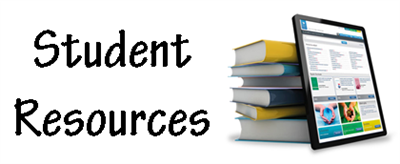Blitz News Digest
Stay updated with the latest trends and insights.
Student Survival Toolkit: Essential Resources for Every Scholar
Unlock your academic success! Discover must-have resources in the Student Survival Toolkit to thrive in your studies and beyond.
Top 10 Must-Have Apps for Student Success
In today's digital age, students have a plethora of tools at their fingertips to enhance their learning experiences. Among these, the top 10 must-have apps for student success can significantly boost productivity, organization, and overall academic performance. From note-taking applications to task managers, these apps streamline study routines and help students stay engaged with their coursework.
- Evernote: A powerful note-taking app that allows students to organize notes, images, and web articles in one place.
- Google Drive: A cloud-based storage solution that facilitates easy sharing and collaboration on documents and presentations.
- Quizlet: An educational tool that enables students to create flashcards and study sets, making revision efficient and interactive.
- Todoist: A task management app to help students keep track of assignments, deadlines, and personal tasks.
- Scribd: An extensive library of books and audiobooks for when students need to conduct research or simply unwind.
- Microsoft Office Lens: A handy app to scan documents and whiteboards, converting them into editable text.
- Trello: A project management tool that allows students to organize group projects through customizable boards.
- Forest: An innovative app that encourages focus by planting virtual trees as users concentrate on their studies.
- Khan Academy: A learning platform offering video tutorials and exercises across various subjects, perfect for supplemental learning.
- Slack: A communication tool that simplifies group discussions and collaborations for class projects.

How to Create an Effective Study Schedule: Tips and Tricks
Creating an effective study schedule is essential for maximizing productivity and ensuring that you cover all necessary material before exams. Start by assessing your study goals and determining what subjects or topics require more attention. Once you have a clear outline, utilize tools like a calendar or planner to map out your study sessions. Incorporate time blocks for each subject, allowing for short breaks in between to prevent burnout. Here are some quick tips to help you design your schedule:
- Prioritize subjects based on difficulty and upcoming deadlines.
- Set realistic and specific goals for each study session.
- Adjust your schedule as needed to accommodate unexpected events.
Consistency is key when following your study schedule. Try to allocate specific days and times dedicated to studying, creating a routine that your brain can adapt to. Additionally, find a study environment that minimizes distractions and enhances focus. It might be a cozy corner at home, a quiet library, or a peaceful café. Remember to regularly evaluate your progress and modify your schedule if certain topics require more time than initially planned. By incorporating these tips and tricks, you’ll not only improve your study habits but also increase your chances of achieving academic success.
What Resources Do You Need for Academic Resilience?
Academic resilience refers to the ability to effectively navigate challenges and setbacks in the academic environment. To cultivate this valuable skill, one must gather essential resources that aid in overcoming obstacles. These resources can include emotional support from family and friends, which helps in building a strong support network. Additionally, access to academic tools such as tutoring services, study groups, and online resources can significantly enhance learning capabilities and increase confidence during tough times.
Moreover, developing time management skills is crucial in fostering academic resilience. Utilizing planners or digital calendars to organize tasks can prevent feelings of overwhelm. Engaging in self-care practices, such as regular physical activity and mindfulness exercises, also plays a vital role in maintaining mental health, which directly impacts academic performance. Finally, seeking feedback from educators can provide valuable insights that contribute to personal growth and resilience in the face of academic challenges.